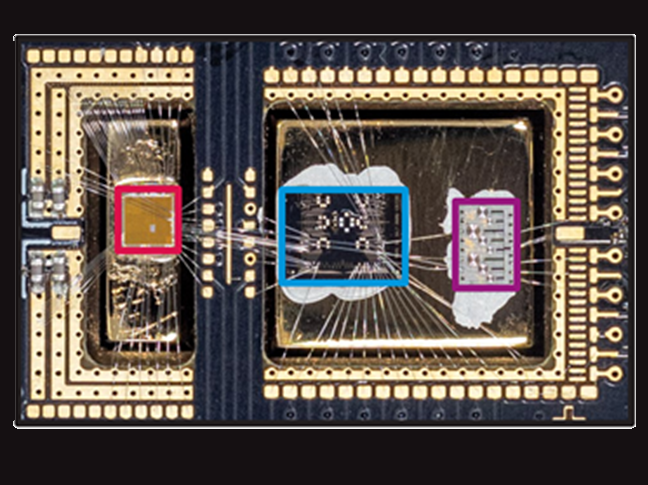The Independent's journalism is supported by our readers. When you purchase through links on our site, we may earn commission.
Quantum computers to overtake regular computers ‘within two years’ after breakthrough
Microsoft’s ‘quantum supercomputer’ aims to compress centuries of scientific discoveries into just a few years

Microsoft has announced plans to build a quantum supercomputer after researchers said the next-generation machines will be able to outperform standard computers within the next two years.
Quantum computers have the potential to be orders of magnitude more powerful than today’s leading supercomputers, but have so far failed to compete when it comes to practical tasks.
A recent benchmark experiment from quantum computing researchers at IBM suggests that the machines will soon be able to perform useful calculations “at a scale where classical computers will struggle”, opening up a vast number of applications.
“These machines are coming,” Sabrina Maniscalco, chief executive of quantum computing startup Algorithmiq, told the scientific journal Nature which published the research this month.
Microsoft revealed its roadmap for building its first “quantum supercomputer” on Wednesday, following several years of research and hundreds of millions of dollars of investment into the technology.
Quantum computers work by replacing traditional bits – the ‘ones’ and ‘zeros’ used to store and transfer digital data – with quantum bits, called qubits, that make use of a quantum phenomena known as superposition to exist in two states at once.
This means they can serve as both a ‘one’ and a ‘zero’ simultaneously, so that each qubit added makes them exponentially more powerful than their traditional counterparts.
Microsoft said it made its own breakthrough by engineering a new type of qubit, described in the journal Physical Review B on Wednesday, that is stable enough to work at scale on a quantum supercomputer.
Microsoft describes a quantum supercomputer as one that can perform one million quantum operations per second, claiming its construction will be completed within the next decade.
“Microsoft has achieved the first milestone towards creating a reliable and practical quantum supercomputer,” the firm wrote in a blog post detailing the roadmap.
“Today marks an important moment on our path to engineering a quantum supercomputer and ultimately empowering scientists to solve many of the hardest problems facing our planet.”
Microsoft CEO Satya Nadella said it was his company’s goal “to compress the next 250 years of chemistry and materials science into the next 25.”
The announcements from IBM and Microsoft follow several major quantum computing breakthroughs in recent years.
In 2019, scientists at Google announced that they had achieved something known as quantum supremacy, when their Sycamore quantum computer was able to solve a problem in 200 seconds that would have taken the most powerful supercomputer in the world 10,000 years to solve.
The milestone has since been repeated by researchers in China, whose quantum computer is able to perform computations nearly 100 trillion times faster than the world’s most powerful supercomputer.
While impressive, neither the Chinese machine nor Google’s Sycamore had any practical use.
John Martinis, one of the Google researchers behind the 2019 milestone, said the latest news made him “optimistic that this will work in other systems and more complicated algorithms”.
Subscribe to Independent Premium to bookmark this article
Want to bookmark your favourite articles and stories to read or reference later? Start your Independent Premium subscription today.

Join our commenting forum
Join thought-provoking conversations, follow other Independent readers and see their replies